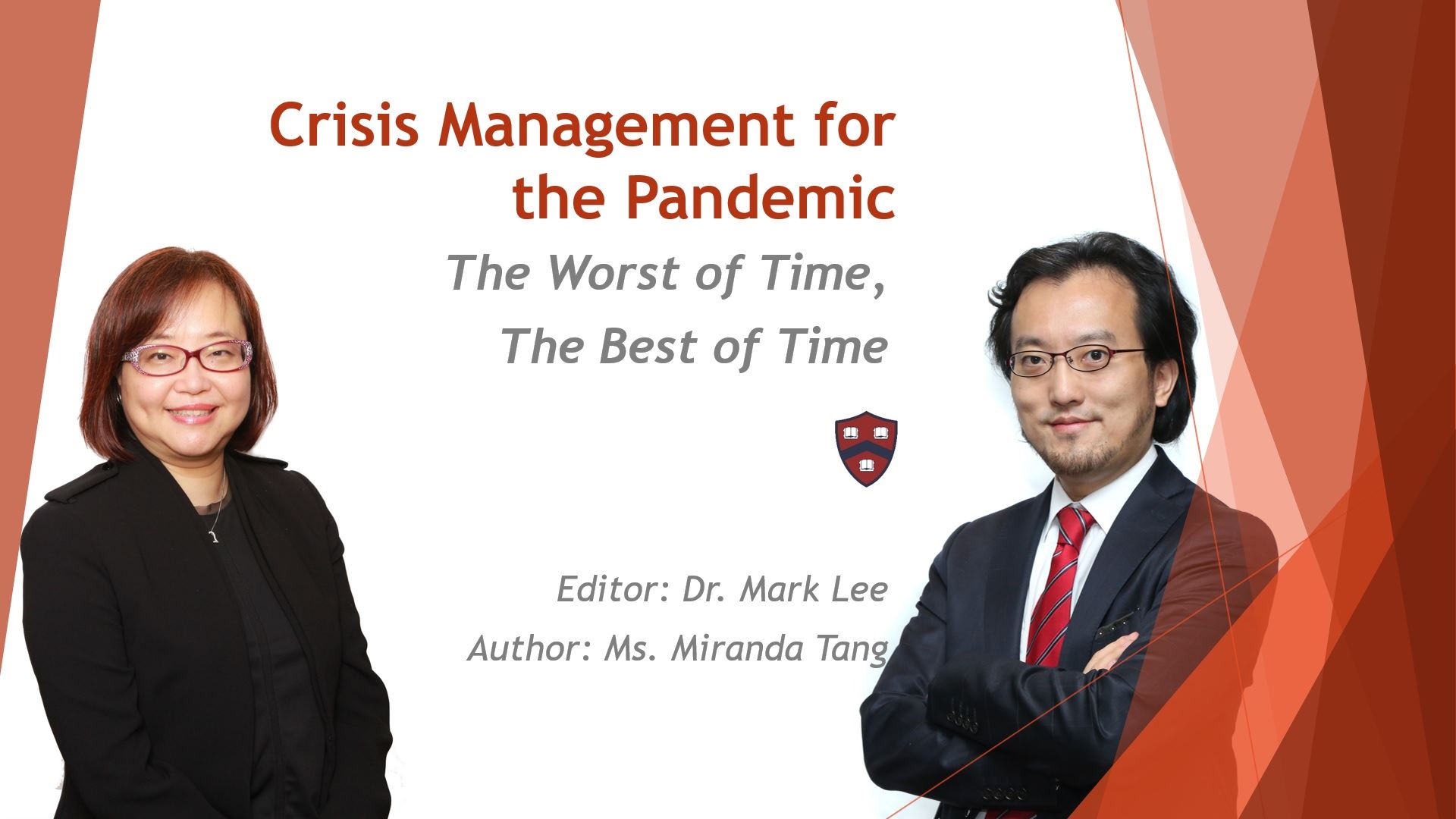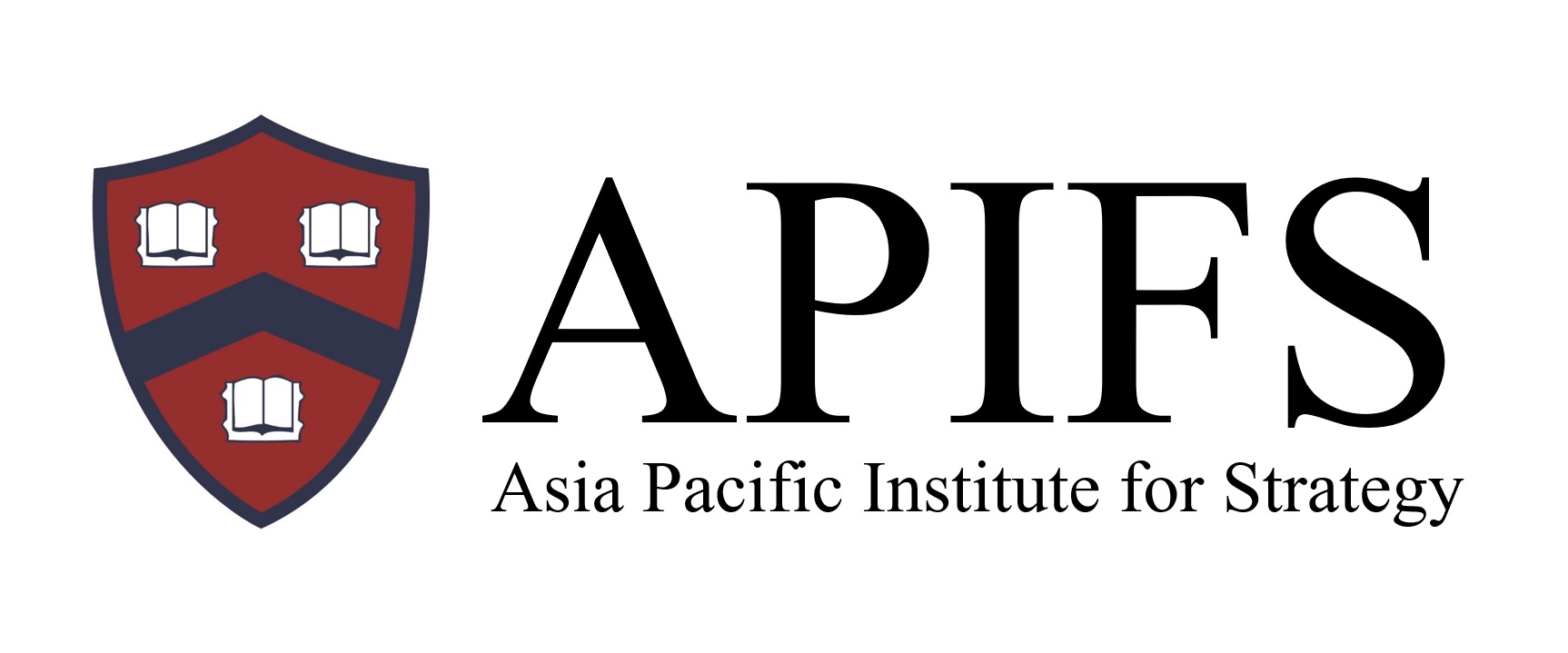
[Crisis Management for the Pandemic] Trend and Crisis Management
The Worst of Time, The Best of Time
Not everything is good but if you can see the good in everything, you will be happier!
The COVID-19 pandemic affects over 110 countries. Disrupting lives and shaking trading floors. With global health deteriorating and global wealth shrinking with unprecedented speed, this may potentially be a perfect storm.
But as the saying goes, the flip side of crisis comes opportunity.
As a private equity investor, I tend to be forward looking and assessing on the longer-term impact and effect as the virus took the world by surprise.
Crisis response is immediate and require real-time decision making from business leaders in an unfolding situation where full information may be lacking.
From my past experience, we would require all investee companies to assess worst-case scenario and to make contingency plans. Many of them would be shocked in the crisis’s mode and most of their respective teams lacked experience in handling acute situations.
Our best recommendation is to keep communication channels opened. Aside from the safety and healthiness of all staff, management need to detail out immediate exposure to supply chain disruption, legal obligation, insurance coverage, banking compliance, additional costs in coping with crisis, possible shutdowns, working capital crunches, third-party risks and broken command chain.
These are far from simple as they may entail difficult decisions including lay-offs and requesting staff to take no-pay leave (to a lesser extent). A lot of renegotiations on contracts and agreements with other stakeholders – suppliers, customers, business partners, bankers, investors, shareholders - would take place.
Some sectors are harder hit than others this time round – retail, food & beverage, luxury goods, leisure, tourism, travel, auto, exhibition, real estate – just to name a few. Most of the operators would scale back to reserve cash and stop losses.
Yet there are various segments that are faring well amidst the compact of the epidemic. Some of these were reviewed or invested in our past funds:
- Medical consumables – masks, protective shields, protective gloves and clothing
- Household cleaning products
- Medical hazards disposal
- Vaccine / drug development
- Genetic sequencing – rapid characterization of the virus
- Everything “E” enabled : e--commerce, e-tailing, e-learning, e-fitness and e-conferencing as a result of minimal foot traffic, ban on social gathering and work-from-home scenario
- Home delivery of everything – from groceries to all day-to-day necessities
- Home entertainment
- Health supplement
- IT solution and digitalization
- Factory automation
Revisiting what we did in 2003 SARS, 2008 financial tsunami and 2011 tsunami, there are potential learnings to be applied and making business rebound stronger.
Don’t lose sight of the big picture. Revisit contingency remedies and start with high-level planning. In previous cases, a few of our portfolio companies took the chance to renegotiate with banks on credit terms and ease out technical default worries. Many owners also then started to consider purchasing business disruption insurance.
Don’t waste a crisis. Often times the most creative ideas are generated while solving an immediate problem. Take this downtime to nurture closer ties with employees and encourage them to come up with solutions. It is also the most opportune time to promote corporate image and foster strong social responsibility to the society where your business operates.
Take the opportunity to expand your ecosystem and look for partners. Rework operation model to make it scalable and continue running at the minimal cost. Our portfolio company in the PCB manufacturing and the healthcare consumables sectors outsourced part of their manufacturing process while they cut down their own work forces.
Continue to have full and transparent communication with all your stakeholders. Your staff, shareholders, business partners, investors, customers and suppliers alike.
It is also a good chance to de-risk over reliance / over concentration issue. It really forces corporate to rethink the whole game plan. Not necessarily re-inventing the wheel but to make business model viable and simplify process to become more recession enduring.
Not all are bad news. Digitalization accelerates amidst a global health crisis like this one. System upgrading can be done more efficiently when business is slow.
In my previous funds, where the investees got strong cashflow, we assisted them in securing M&A opportunities and acquired their closest competitors. In other cases, the crisis provided the right timing to spin off non-core assets.
At some point the outbreak will subside and the world will move on. Nevertheless, don’t expect “normal” to return quickly.
For now, health is the one and only priority!
Data Sources: APER, Bloomberg, WSJ, Nikkei Asia Review Report, McKinsey, Bloomberg Businessweek, The Economist, Ogilvy and SCMP.
Miranda Tang
- Former Managing Director, CLSA Capital Partners Ltd
- Founder, Dream Matcher Limited
- Fellow, Private Equity Industry, Asia Pacific Institute for Strategy ( 亞研所院士 )
Published on March 16, 2020
Related Articles:
《Tai Hing 3.0》Foreword by Dr. Mark Lee:Upgraded Strategy, Advanced Enterprise
[CEO Insights]Crystal Interview:Management Philosophy for an Enterprise from Zero to Billions
[CEO Coaching]Octopus Interview: Innovative Thinking Strategy
[CEO Coaching]BEA Interview: Development Opportunities for Hong Kong Banking Industry
[CEO Coaching]Pfizer Hong Kong Exclusive Interview:What makes a successful enterprise?
[CEO Coaching]Ericsson (HK) Limited Interview:Would Hong Kong lose its competitive edge in 5G era?
Australia: +61 3 9015 4991
Singapore: +65 6850 5067
Hong Kong: +852 3970 1828
Email: cs@apifs.net
Asia Pacific Institute for Strategy (C) 2026
